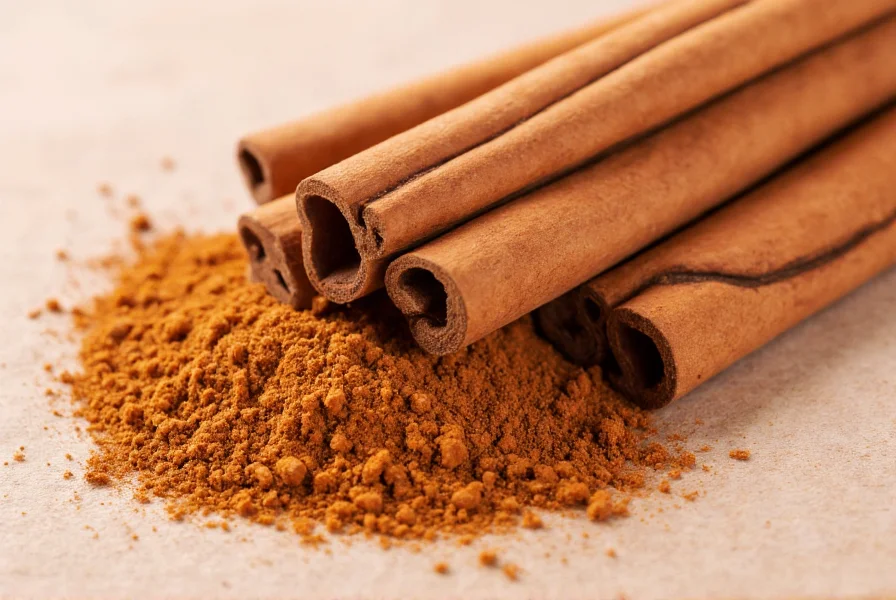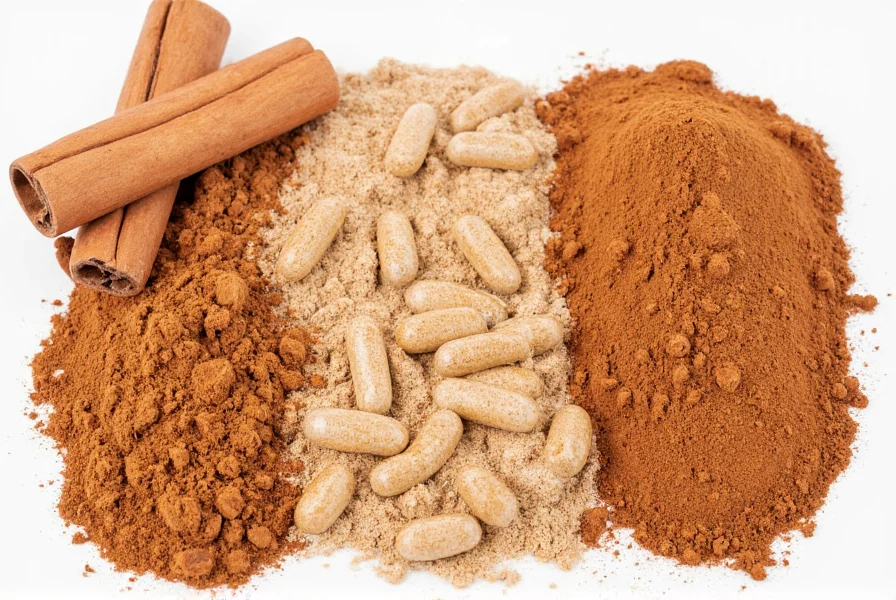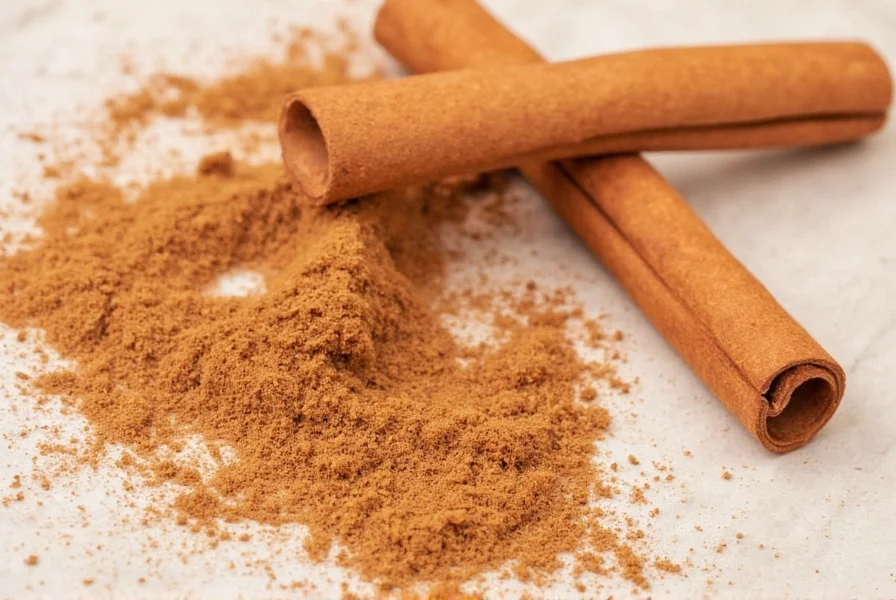Cinnamon isn't just a flavorful spice for your morning coffee or baked goods—it's a powerhouse of health-promoting compounds backed by scientific research. This ancient spice, used for thousands of years in traditional medicine systems across Asia and the Middle East, has gained modern scientific validation for several specific health benefits.
Understanding Cinnamon: Types and Key Components
Before exploring what cinnamon is good for, it's essential to understand there are two primary varieties you'll encounter:
| Type | Characteristics | Health Considerations |
|---|---|---|
| Ceylon Cinnamon | "True" cinnamon, lighter color, delicate flavor | Lower coumarin content, safer for regular consumption |
| Cassia Cinnamon | Most common in supermarkets, stronger flavor, darker color | Higher coumarin levels, moderation recommended |
The health properties of cinnamon primarily come from its rich concentration of polyphenols, particularly cinnamaldehyde, which gives cinnamon its distinctive flavor and aroma while providing most of its therapeutic effects.
Science-Backed Health Benefits of Cinnamon
Blood Sugar Regulation and Insulin Sensitivity
One of the most well-documented cinnamon benefits for blood sugar control involves its ability to improve insulin sensitivity. Multiple studies, including a comprehensive review published in the Journal of the Academy of Nutrition and Dietetics, found that cinnamon supplementation significantly reduced fasting blood glucose levels in people with type 2 diabetes.
Researchers believe cinnamon mimics insulin's action and enhances glucose uptake by cells. For those searching what is cinnamon good for health regarding metabolic concerns, incorporating 1-6 grams (about 1/2 to 2 teaspoons) daily shows measurable benefits without medication interactions when used appropriately.

Powerful Antioxidant Protection
Cinnamon ranks exceptionally high on the ORAC (Oxygen Radical Absorbance Capacity) scale, which measures a food's antioxidant capacity. In fact, it contains more antioxidants by weight than many fruits and nuts.
These antioxidants, including polyphenols and flavonoids, combat oxidative stress that contributes to chronic diseases and aging. Regular consumption of cinnamon what is good for reducing oxidative damage throughout the body, potentially lowering risk factors for numerous age-related conditions.
Natural Anti-Inflammatory Effects
Chronic inflammation underlies many serious health conditions. Cinnamon's anti-inflammatory properties make it valuable for those wondering is cinnamon good for inflammation.
The cinnamaldehyde in cinnamon inhibits inflammatory pathways at the cellular level. A study in Molecular Nutrition & Food Research demonstrated that cinnamon reduced inflammatory markers in participants with metabolic syndrome. For natural inflammation management, incorporating cinnamon into your daily routine offers a culinary approach to wellness.
Heart Health Support
Research suggests cinnamon for heart health by positively affecting several key risk factors. Studies show regular cinnamon consumption can help reduce:
- Triglyceride levels
- LDL ("bad") cholesterol
- Total cholesterol
- Blood pressure
A meta-analysis in Nutrition Research Reviews concluded that cinnamon supplementation significantly improved multiple cardiovascular risk markers, making it a valuable dietary addition for heart health maintenance.
Brain Function and Neuroprotection
Emerging research indicates cinnamon health benefits scientific evidence extends to brain health. Compounds in cinnamon may inhibit the buildup of tau proteins and amyloid plaques associated with Alzheimer's disease.
Additionally, cinnamon appears to protect neurons and improve motor function in animal models of Parkinson's disease. While more human studies are needed, these preliminary findings suggest cinnamon could play a role in long-term brain health strategies.
How to Incorporate Cinnamon Into Your Diet
Understanding what cinnamon is good for leads naturally to the question of proper usage. Here's how to maximize benefits:
- Add to morning coffee, tea, or smoothies
- Sprinkle on oatmeal, yogurt, or fruit
- Use in savory dishes like curries and stews
- Include in baking recipes for natural sweetness
The optimal daily amount for health benefits ranges from 1-6 grams (approximately 1/2 to 2 teaspoons). Those using Cassia cinnamon should stay toward the lower end of this range due to its higher coumarin content.
Safety Considerations and Potential Side Effects
While cinnamon offers numerous health advantages, it's important to understand potential concerns:
- Coumarin content: Cassia cinnamon contains higher levels of coumarin, which in excessive amounts may cause liver damage
- Medication interactions: Cinnamon may interact with blood thinners and diabetes medications
- Allergic reactions: Rare, but possible skin or respiratory reactions
- Pregnancy: Moderate culinary use is generally safe, but therapeutic doses should be discussed with a healthcare provider
For regular therapeutic use, Ceylon cinnamon represents a safer option due to its significantly lower coumarin levels. Those with liver conditions should consult their physician before regular cinnamon supplementation.

Choosing Quality Cinnamon
Not all cinnamon products deliver equal benefits. When selecting cinnamon what is good for health purposes:
- Check labels for type (Ceylon vs. Cassia)
- Choose organic when possible to avoid pesticides
- Look for vibrant color and strong aroma as indicators of freshness
- Store in airtight containers away from light and heat
Freshness matters—ground cinnamon loses potency faster than whole sticks. For maximum health benefits, grind your own sticks as needed rather than purchasing pre-ground powder.
Conclusion: What Cinnamon Is Good For
The scientific evidence clearly demonstrates what cinnamon is good for: supporting healthy blood sugar levels, reducing inflammation, providing antioxidant protection, and promoting cardiovascular health. Both Ceylon and Cassia varieties offer these benefits, though Ceylon represents a safer option for regular, long-term consumption due to its lower coumarin content.
When incorporated as part of a balanced diet and healthy lifestyle, cinnamon serves as a delicious and functional addition to your wellness routine. Remember that while cinnamon offers impressive health benefits, it works best as part of an overall healthy approach rather than a standalone solution for serious health conditions.
Frequently Asked Questions
What is the recommended daily amount of cinnamon for health benefits?
Research suggests 1-6 grams (approximately 1/2 to 2 teaspoons) of cinnamon daily provides measurable health benefits. Those using Cassia cinnamon should stay toward the lower end of this range (1-3 grams) due to its higher coumarin content, while Ceylon cinnamon allows for the full range as it contains minimal coumarin.
Can cinnamon help with diabetes management?
Multiple studies show cinnamon can improve insulin sensitivity and lower fasting blood glucose levels, making it potentially beneficial for type 2 diabetes management. However, it should complement—not replace—standard diabetes treatments. Always consult your healthcare provider before using cinnamon therapeutically if you have diabetes, especially if taking medication, as it may enhance medication effects.
What's the difference between Ceylon and Cassia cinnamon for health benefits?
Both types offer similar health-promoting compounds, but Ceylon cinnamon ("true" cinnamon) contains significantly less coumarin—a compound that in high doses may cause liver issues. For regular, long-term consumption, Ceylon is the safer choice. Cassia is more common and less expensive but should be consumed in moderation (1-3 grams daily) for therapeutic purposes.
How long does it take to see benefits from regular cinnamon consumption?
Most studies showing measurable benefits (particularly for blood sugar regulation) used interventions lasting 4-12 weeks. Individual results vary based on health status, dosage, and consistency of use. For best results, incorporate cinnamon consistently into your daily diet rather than expecting immediate effects from occasional use.
Can I take cinnamon supplements instead of the spice?
Cinnamon supplements provide concentrated doses of active compounds and may be convenient, but whole cinnamon offers additional fiber and synergistic compounds lost in extraction. If choosing supplements, look for standardized extracts with clear dosing information and consult your healthcare provider, especially if you have health conditions or take medications. For most people, incorporating the whole spice into their diet represents the safest and most beneficial approach.











 浙公网安备
33010002000092号
浙公网安备
33010002000092号 浙B2-20120091-4
浙B2-20120091-4